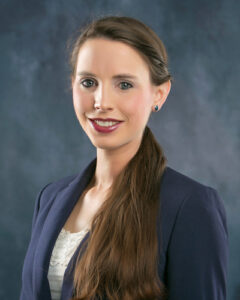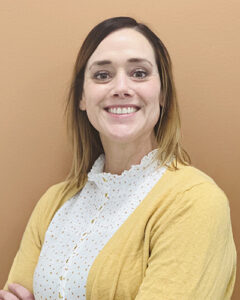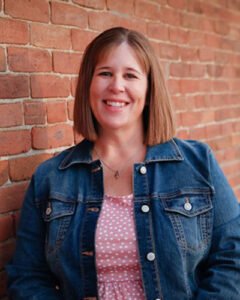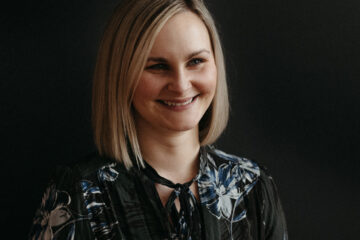(Editor’s note: Rachael Denhollander, the first woman to publicly accuse former U.S. national team doctor Larry Nassar of sexual abuse, is the Chrysalis Foundation’s 2023 “Inspired” keynote speaker. As part of Fearless’ coverage of Denhollander’s Nov. 13 visit to Central Iowa, I interviewed two Iowa women whose jobs involve making sure that medical professionals throughout the state are aware of training and other resources to help them be effective responders when patients come to them after being sexually assaulted. I wrote an initial story about Denhollander but I had more notes that I couldn’t discard. Here is more of what I learned from the interviews. – Nicole Grundmeier)
When someone discloses sexual abuse or rape to a friend, to a family member, to a co-worker, to anyone, what that listener says and does next can greatly affect the survivor – and what happens next.

In her 2019 memoir, “What Is a Girl Worth?” Rachael Denhollander describes washing dishes while her mother gently asks her questions. Her mother had noticed sudden behavioral changes in Denhollander, such as an intense fear of having men standing closely behind her.
Larry Nassar, the former doctor who treated many U.S. national team gymnasts, had recently escalated his abuse. Denhollander wrote in her book:
“I focused on the handful of silverware I was scrubbing and told her how Larry had groped my breast. She kept her voice calm as more bubbles met their demise under the running water.
“‘That makes me very, very angry. I am so sorry.’ Her voice was filled with grief, anger and regret.
“She believed me. I knew she would. She knew what it was like to not be believed.”

Believing a survivor of sexual assault is the first and most important thing a person can do, said Sara Hulen, a sexual assault forensic response coordinator in the Iowa attorney general’s office, and Shannon Knudsen, a sexual assault nurse examiner coordinator in Central Iowa.
“What I really love about Rachael’s account of what happened is her mother seems to be a blessing in so many ways – the way she talked to Rachael and validated Rachael, let Rachael take the lead on her own healing and her life. I think that speaks volumes for her mother,” Hulen said.
Hulen and Knudsen said that, in their work, they often see generational abuse and trauma.
“I’ve seen parents who have been sexually assaulted, and then they come in with their child [who has been] sexually assaulted, and sometimes you have the parents who remark, ‘This couldn’t have happened, because this is what happened when it happened to me.’ So they don’t recognize that maybe their child’s reaction, because it was different from their own – doesn’t mean it doesn’t happen,” Hulen said.
What should Iowans do if someone discloses sexual abuse?
“Always, first and foremost, definitely believe them,” Hulen said.

“Being able to say, ‘I’m really sorry that happened to you,’” Knudsen said. “If they have knowledge of resources, great. But, ‘I’m really sorry that happened to you. How can I help? What do you need from me, as far as support? I believe you.’ I think those are great things versus, “Oh my God, well, we gotta go to the cops! We gotta go.’ That’s not what we need right then. They may not know what they need.”
There are a variety of reasons sexual assault survivors might not immediately tell anyone, be it their closest loved ones or authorities, about what happened to them, according to a resource from the Jackson Health System.
Hulen said it is OK for a person to tell a survivor that they might not know what the next steps are but that they will help.
“I think it’s important to not tell people what they need to do. And if you don’t know the options, that’s OK. Say, ‘Hey, thank you for telling me that. We can figure this out together.’ But not telling a person what they need to do,” Hulen said.
Knudsen said to be sure to not place any blame on the person who has disclosed the assault or abuse.
“Our victims do a fine job of blaming themselves. You know, they don’t need, ‘Well why were you there? Why did you go out with that person?’” Knudsen said.
Hulen said to avoid stereotypes like “Oh, he would never do that. I can’t believe you would say that about him. Just all those common victim-blaming techniques that are out there that just need to go bye-bye.”
Tickets to Denhollander’s “Inspired” lecture, which will be held from 11:30 a.m. to 1 p.m. on Nov. 13 in West Des Moines, are available here.

